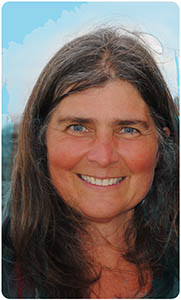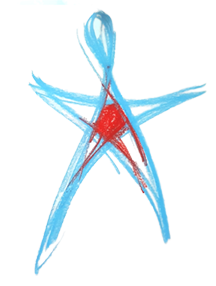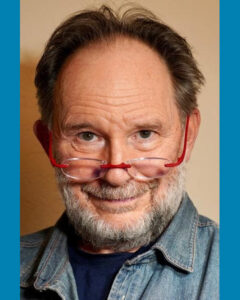
Update for the 2023 North American Festival in Manitoba: An Interview with Bruce Donehower
by Susan Koppersmith
(from the December, 2022 Enews)
Bruce Donehower, who lives in Fair Oaks, California, is the leader of the North American Section of the Literary Arts and Humanities. He is a scholar of British and German Romanticism with a special interest in Novalis. He is a poet, novelist, essayist, musician, storyteller, and translator. He facilitates the almost weekly Section Zoom meetings on research projects dealing with William Shakespeare, Goethe, Novalis, James Joyce and many other subjects. Recently, Philip Thatcher gave a reading of his latest book of poetry, Good Time. All Society members and friends who have a special interest in the literary arts are welcome to the Saturday night Zoom calls which start at 7 pm and last for an hour. If you are interested in participating, you can email Bruce directly: brucedonehower (at) gmail.com.
The Literary Arts Section has an easy-to-navigate website: TheLiteraryArts.com where you can find the meeting schedules (and summaries), view videos that Bruce has made and download interesting articles. The breadth of topics that this group has researched is remarkable!
AND….. Bruce is coming to Manitoba to our 2023 Festival, That Good May Become! He will facilitate a dramatic performance based on the writings of Novalis in collaboration with other artists from the Visual Arts and Performing Arts Sections.
Susan: Bruce, it is wonderful that you want to travel across the continent to meet us in Manitoba! What led you to make this decision?
Bruce: Patricia Dickson is very important here. Patricia and I, and my wife Marion from Visual Arts and speech artist Margit Ilgen were at work last summer on a performance video of the Novalis fairytale Atlantis, and Patricia thought that this artistic project, which you can find on the Section website, might speak to the Canadian event.
Then I had a phone call with Bert Chase and, as often happens, Novalis inspired the conversation. My special love and area of expertise has always been Novalis. When someone spends as much time as I have living with a literary personality, that personality lives with you continually and in all situations and wants to be active. Often, I have the imaginative experience that Novalis (Friedrich von Hardenberg 1772 – 1801) reaches out to me.
Susan: Bruce you have a book out on the Novalis: “The Birth of Novalis: Friedrich von Hardenberg’s Journal of 1797 with Selected Letters and Documents” (SUNY Press, 2007). What did you learn about Novalis by translating his letters and the diary that he kept after Sophie’s death?
Bruce: In my experience, many people know Novalis through secondary literature. I was certainly in that group when I was younger in my teens and twenties, when I first discovered anthroposophy, for example – or heard about The Last Address. Only when I began to read the primary texts written by Novalis did I begin to understand Novalis and feel that a relationship was developing with him. Those primary texts are an obstacle for many friends, since those texts are in eighteenth-century German and the existing English translations of the poetry and fiction do not, in my opinion, capture the living word – certainly not the living word as it might be spoken in our 21st century. My translation of the journal, the letters, and related biographical documents cleared away the fog for me. Now I am at work translating various poems and fairytales that he wrote.
Susan: The theme of our Festival is That Good May Become. Why do you think Novalis is relevant to this theme?
Bruce: Like William Blake, his spiritual brother and contemporary, Novalis brings energy for renewal, transformation, and initiative. He faces the future. He is disruptive. He and his friends were the original Youth Section, I like to say. Also, as I said, I think that the English translations of Novalis, starting with Thomas Carlyle, don’t work out so well in our 21st century. Following Rudolf Steiner’s indication that Novalis will be very important in our 21st century, I think we need fresh English translations in a 21st century idiom that will illuminate the lives of those of us living in North America. This is why I am doing my own translations of Novalis’ work which I will share at the Festival. I see this event as an opportunity for Novalis to set foot upon North America and hopefully invigorate all of us.
Susan: Can you describe Novalis a bit more? What was he like as a person?
Bruce: Novalis had a warm, outgoing personality and was interested in science and the humanities; he was practical and down to earth, and he was acquainted with people from all walks of life. He was a “solar” individual around whom other people orbited. I made a short video in which his best friend Ludwig Tieck describes Novalis in his own words. It’s a good introduction, since Tieck speaks from first-hand knowledge about his friend. You can find it on the website. Blake and Novalis both recognized the importance of art and images and beauty for our Present Age. They faced the future. That’s why I prefer to make artistic performance videos about Novalis instead of giving lectures or writing essays. Also, I have reached a point in my life where the fairytale is mightier than philosophy, as I like to say.
Susan: Bruce, many thanks for your time. I will read some of your translations of Novalis posted on your website and I look forward to meeting you in person next summer!
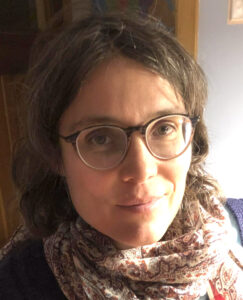
Update for the 2023 Manitoba Festival
and an Interview with Corinna Sons
by Susan Koppersmith
(from the November, 2022 Enews)
Excitement is building!
Look on our Society’s website to click on the yellow banner where you can see emerging details of the North American Festival which will take place near Winnipeg from August 10th to 16th, 2023. This Festival, That Good May Become, will celebrate the mystery of human initiative and one hundred years of the re-founding of the world-wide Anthroposophical Society.
There are going to be presentations by Peter Selg and Constanza Kaliks from the Goetheanum as well as Bert Chase, our General Secretary. We are reaching out to the Indigenous community in Manitoba to find an Elder to speak on one of the days. Bruce Donehower from California and carrier of the Literary Arts Section will give a presentation on Novalis. Also from the USA, Patricia Dickson from the Visual Arts Section will give a slide presentation of the First Goetheanun. Emmanuel Vukovich, a concert violinist from Canada will present from his Parcival Project. There is also an evening that is an open slot at the moment.
There are ‘Working Together’ groups being planned in the mornings and afternoons over four of the Festival days. The purpose of these groups is to facilitate the process of bringing together those who seek to share their ongoing research and, in so doing, find new collaborators. One such group, dealing with Economics, Threefolding, and North/South forces, is being carried by our Society’s interim Treasurer, Sebastian Bilbao. More groups are being planned. There will also be a possibility for ASC members to propose a Working Together group.
See the Preliminary Festival Program.
Corinna Sons, who lives in London ON, has been an active participant in our planning meetings which started in the summer of 2021. She teaches French and Music part-time at the London Waldorf School. On a recent Zoom call I asked her a few questions:
Susan: Corinna, you must be quite busy with your family and your teaching. What led you to take on even more responsibility with helping to organize this Festival?
Corinna: It’s true that teaching and prepping do take up a good part of my time. Fortunately, my children are getting older and don’t need me quite so much any more. I think many people need a passion beyond the day-to-day routine with job and family. Some people are enthusiastic about gardens or they are painters or writers or gourmet cooks, etc. My passion is to be active with others in an organization where we share similar goals. For me this organization is our Anthroposophical Society. As soon as I begin to work with others for a higher purpose, I feel a commitment. I want to get to know everybody and work with their strengths.
For a couple of years I was active on the Branch and Membership Mandate Group. But this group is not active at the moment because the majority of the members have migrated over to the 2023 Festival Planning Group.
Recently during our 2023 planning meetings I realized that we haven’t included a pedagogical Working Together group at the 2023 Festival. I remember on one of our Society Zoom calls hearing an enthusiastic and inspired presentation by a Waldorf teacher in Nelson BC. I called her up to see if she would be interested in helping us set up this working group. She was delighted to be asked! I really enjoy this kind of networking.
Susan: What else excites you about this Festival?
Corinna: The Working Together groups interest me very much. I like the chance of being part of a group where I have a chance to be active. The outcome is not predetermined; I will meet new people and something unforeseen might happen. This is the wonder and mystery of initiative!
A Visit to the Festival Site
by Kim Hunter (Festival Organizer)
(from the October, 2022 Enews)
In space, it was, for me, an epic journey of around 10,000 km by van; In time it took 5 weeks. The first stop, on Vancouver Island was a West Coast Institute board retreat at Ruth and Michael Kerr’s near Duncan. The eastern end-point was at the early childhood teacher training in Thunder Bay, Ontario, and the south-western point a meeting of the North American Collegium in San Francisco, California. There were many bits of work along the way, mostly Anthroposophic, in small communities. One of the big highlights was a trip to Monika Pudelko’s land in Manitoba – about an hour’s drive north of Winnipeg, and 20 minutes or so west of Gimli and Winnipeg Beach, both communities on the shore of Lake Winnipeg. Although I have visited Monika’s land before, this was the first time I was able to explore it through the lens of the planning of That Good May Become, the festival which will take place next August to recognize the 100th anniversary of the 1.25 years straddling the time from the Christmas Conference to Rudolf Steiner’s death in March of 1925. It was wonderful to spend some time with Monika exploring the land and imagining what will take place there next year.
We – my partner, Joseph Roberts and I – arrived just after dark. Monika met us at the road and we followed her vehicle on the new driveway – picture a long wide trail through dry prairie grass that has been mowed. Very flat to the eye but my van noted every bump. Joseph and Dominic – a fellow Anthroposophist who lives nearby – made it their mission the next day to fix one of the bigger bumps and a swerve in the driveway making it safer to navigate. A gathering to celebrate Michaelmas was planned for late in the afternoon and people would be driving out after dark.
We dug gravel from the old gravel pit – now a pond – on the land and brought it by the wheelbarrow-full to help the process. It felt so good to work and walk the land after the long journey. We slept in the Earthship. Monika’s masterpiece home – it is off the grid and built with eco-friendly materials. The last time I visited, a skeleton of the structure was mostly formed – it is wonderful to see it now. Each morning I joined Monika in working with the soul calendar verse in eurythmy. Joseph joined us on the last morning, his first eurythmy experience. The festival was lively and wonderful, there was ample social time and Monika led us in the movement of the verses of the Foundation Stone Meditation. As night fell, we had a fire outside and cooked our dinner there.
I am Vancouver-born and raised, but since both of my parents were Winnipeg-born, I spent many summers visiting family in Manitoba – in fact, it was there that I first experienced working at a festival: the Winnipeg Folk Music Festival of 1982, which continues to take place in Birds Hill Park. I knew then that I was called to work in this field. Even after spending a fair bit of time in Manitoba, the landscape never ceases to amaze me: How far one can see, how vast the sky. Here earth and sky share equal portions of space. I imagine the curve of the earth below me and feel somehow that I am in the center. The night skies are broad and bright and deep; the sunlight shines in ways that I suspect are unique to this area of the world. You will hear more about my journey in next month’s edition of the newsletter. Susan Koppersmith will interview me when I’m in Vancouver in a couple of weeks, she plans to write something. I hope this has wet your appetite, and has you thinking about how you will journey to Monika’s next summer.
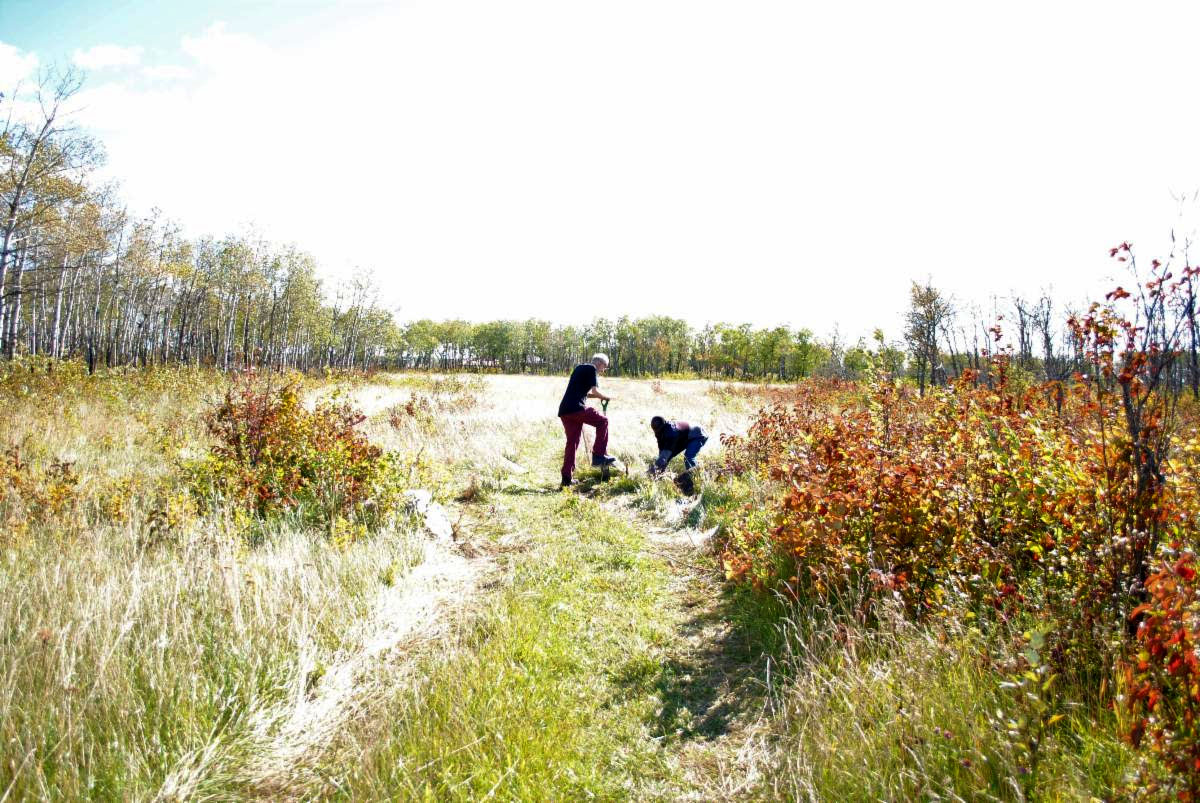
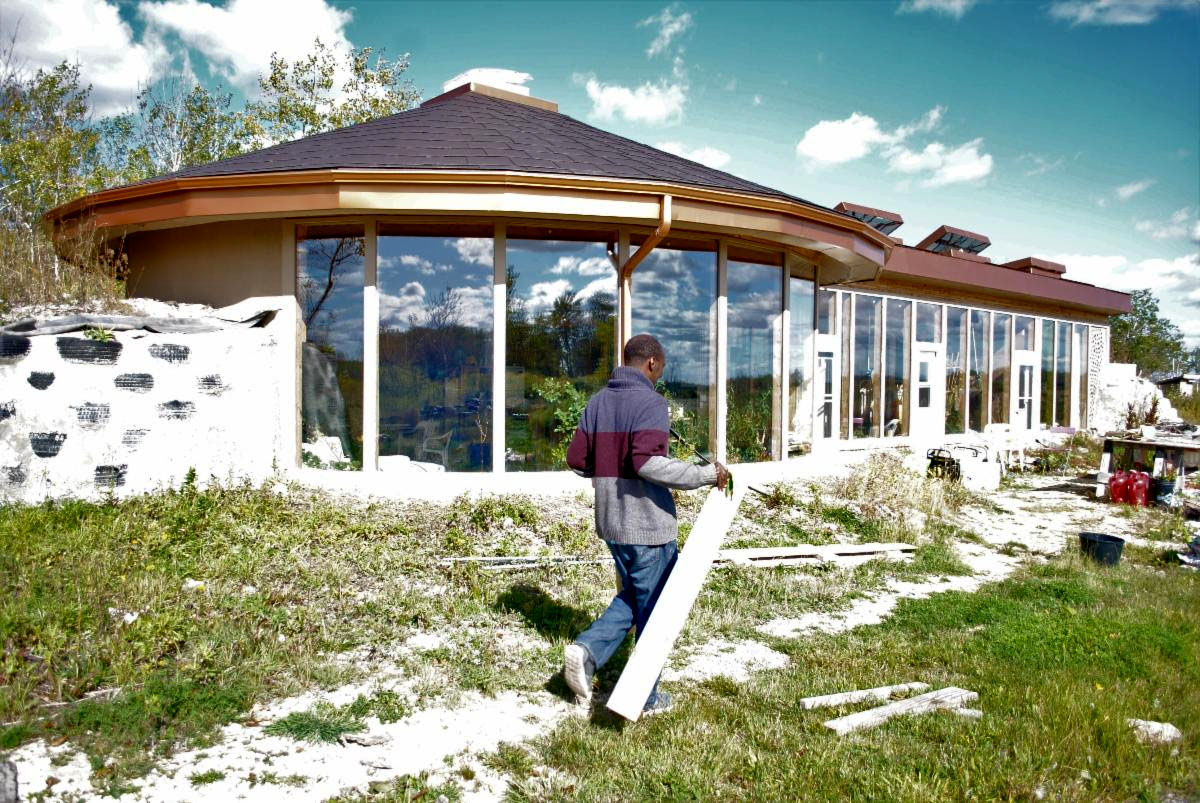
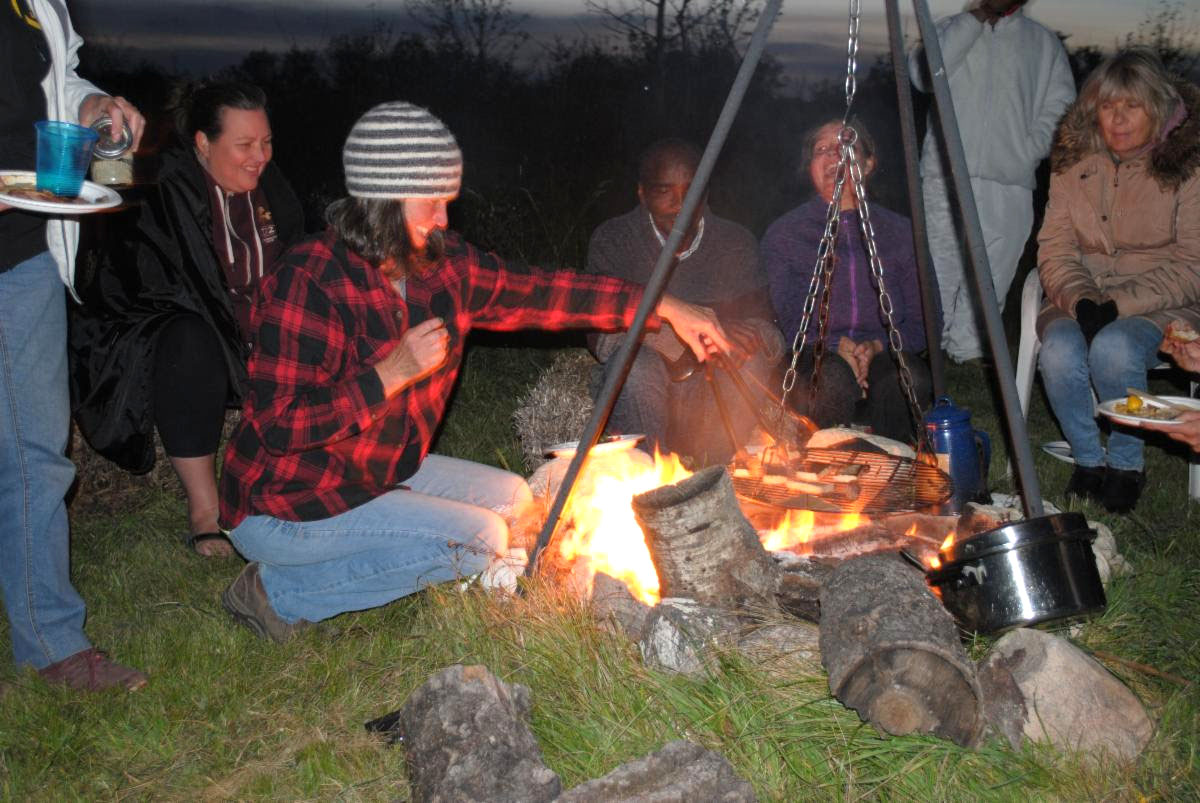
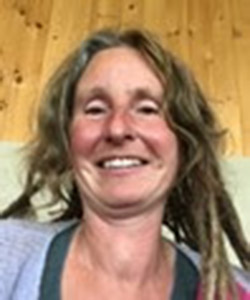
“That Good May Become” – Manitoba 2023
An Interview with Monika Pudelko
by Corinna Sons
(from the September, 2022 Enews)
Monika Pudelko is a trained eurythmist and Waldorf teacher. Originally from Germany, she came to Canada in 2012. After traveling and teaching eurythmy throughout Canada, she decided to make Winnipeg her new home. She started a Waldorf daycare and homeschooling initiative at her house and co-founded an eco-village group in 2015. For this project, she invested in 320 acres of property where some off-grid homes have been built – and it is on this land that the 2023 North-American anthroposophical conference is going to take place. I talked with Monika about her vision for the eco-village and how this connects to the upcoming event. “I have been carrying the vision of a land-based community for over 20 years,” says Monika. An encounter with Ibrahim Abouleish, the founder of the SEKEM community, encouraged her to start her own initiative.
Monika sees a threefold education centre at the heart of the emerging community in Manitoba: “I am envisioning a school where young people can acquire skills and capacities to ring the community forward, such as gardening, building, self-sufficiency, community-building, arts, and homesteading. This education centre should be integrated with trades and businesses like carpentry, mechanics, and biodynamic farming to ensure the economical sustainability of the eco-village. As with the Sekem initiative, business surpluses would flow into education.” Monika stresses the importance of a shared spiritual foundation for this work – which has been a struggle in the past: “There are quite a few people around who like the idea of land-based communal living, but hardly any of them are willing to wrestle with the ideals of brotherliness and social threefolding. Manitoba is at the centre of the continent. It needs a Christ-centered spiritual hub, to heal and work with the strong ancestral grounds.”
As for the 2023 conference, Monika is very excited to provide the space for this event: “I hope that during this festival a new foundation for our initiative can be created. We need more people to make this project work – people with business experience, and people who are passionate about building a community out of the spirit of anthroposophy. The conference should help to bring these people together.”
Monika will also contribute to the festival as a eurythmist. She has been working with the Foundation Stone meditation for many years and is planning to share her experience in a workshop.
Meet Kim Hunter
A Key Organizer for the 2023 Manitoba Festival
by Susan Koppersmith
Kim lives on Salt Spring Island in BC. Prior to becoming a Waldorf kindergarten teacher, she worked in the entertainment industry–backstage (sound, lighting and stage/tour managing) organizing and booking tours for artists and at festivals around the globe. For 36 years, she has maintained her work in the field and continues to be in management at the Vancouver International Children’s Festival, the Vancouver Folk Music Festival and a French cultural festival, Festival du Bois, which takes place in Maillardville, just outside of Vancouver.
A group of 12 members have been planning for this Festival over the past year with monthly Zoom calls. We are in the process of creating a website for the event and the schedule is emerging. People will be able register online. We have accommodation lined up. It is all very exciting! We hope to involve members from Visual Arts Section, the Agricultural Section, the Literary Arts Section and the Natural Science Section as well as others.
This September Kim will visit Monika Pudelko’s land in Manitoba where the Festival will take place; she will be there to work with Monika to sort out practical details. We feel in good hands with Kim’s past experience and expertise with organizing cultural events. When asked what excites her about the 2023 Festival, she says:
“Everything about our gathering in Manitoba next summer excites me. This part of Canada marks the centre point of North America. This is a place of the widest skies and flattest lands: “Manitoba” likely comes from the Cree “Man-intowahpaow”, which means “the narrows of the Great Spirit”.
The idea of meeting together here, to honour the 100th Anniversary of the refounding of the Anthroposophical Society thrills me. To reflect on our history and turn our gaze to the future under the guidance of many experts in their fields, we will explore and experience a cultural enlivening that may act as a foundation stone in the centre of this continent, “that good may become”… for the next hundred years.
Stay tuned and look for details about this Festival in the coming months.
